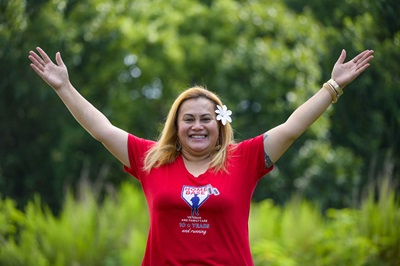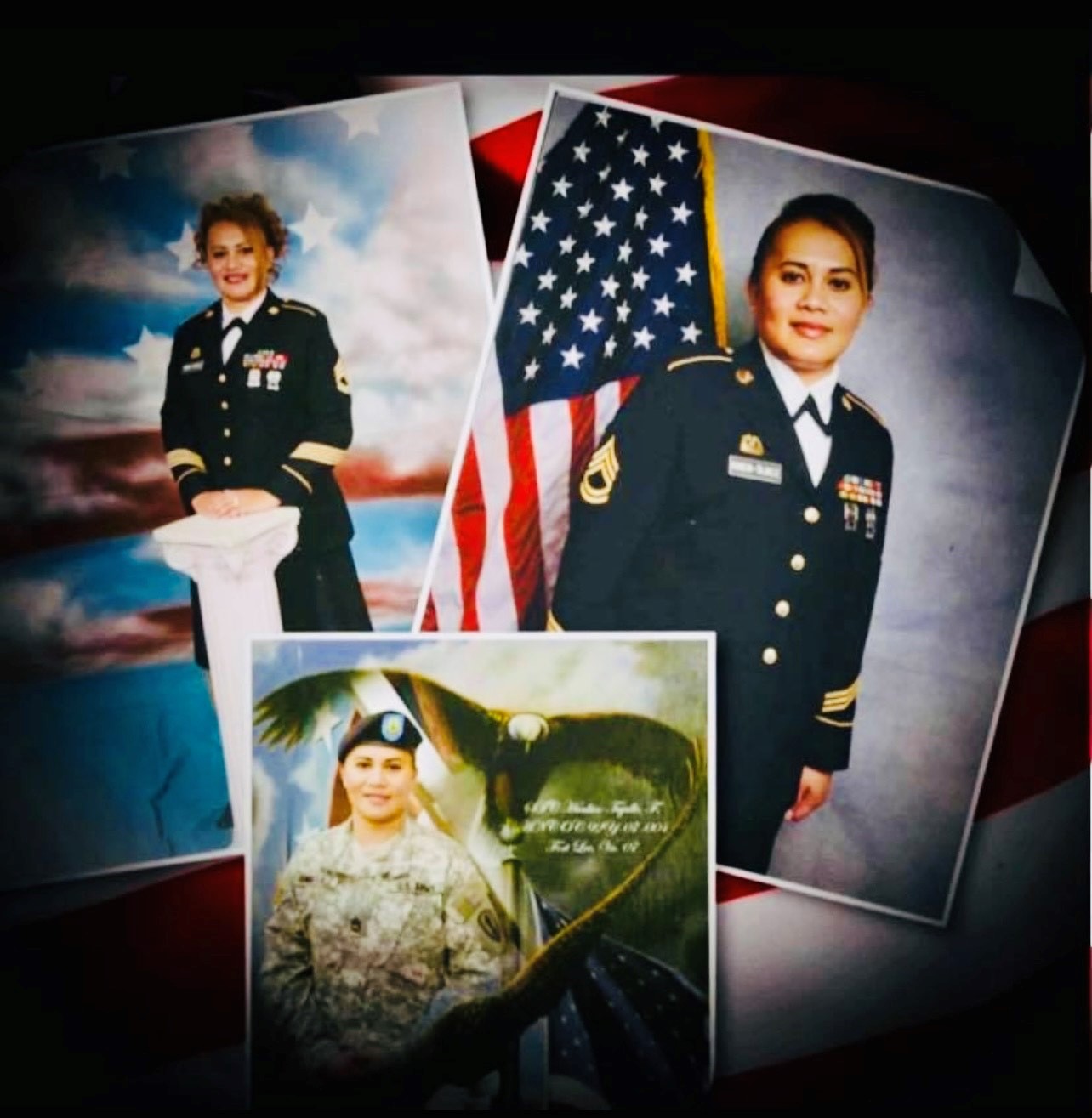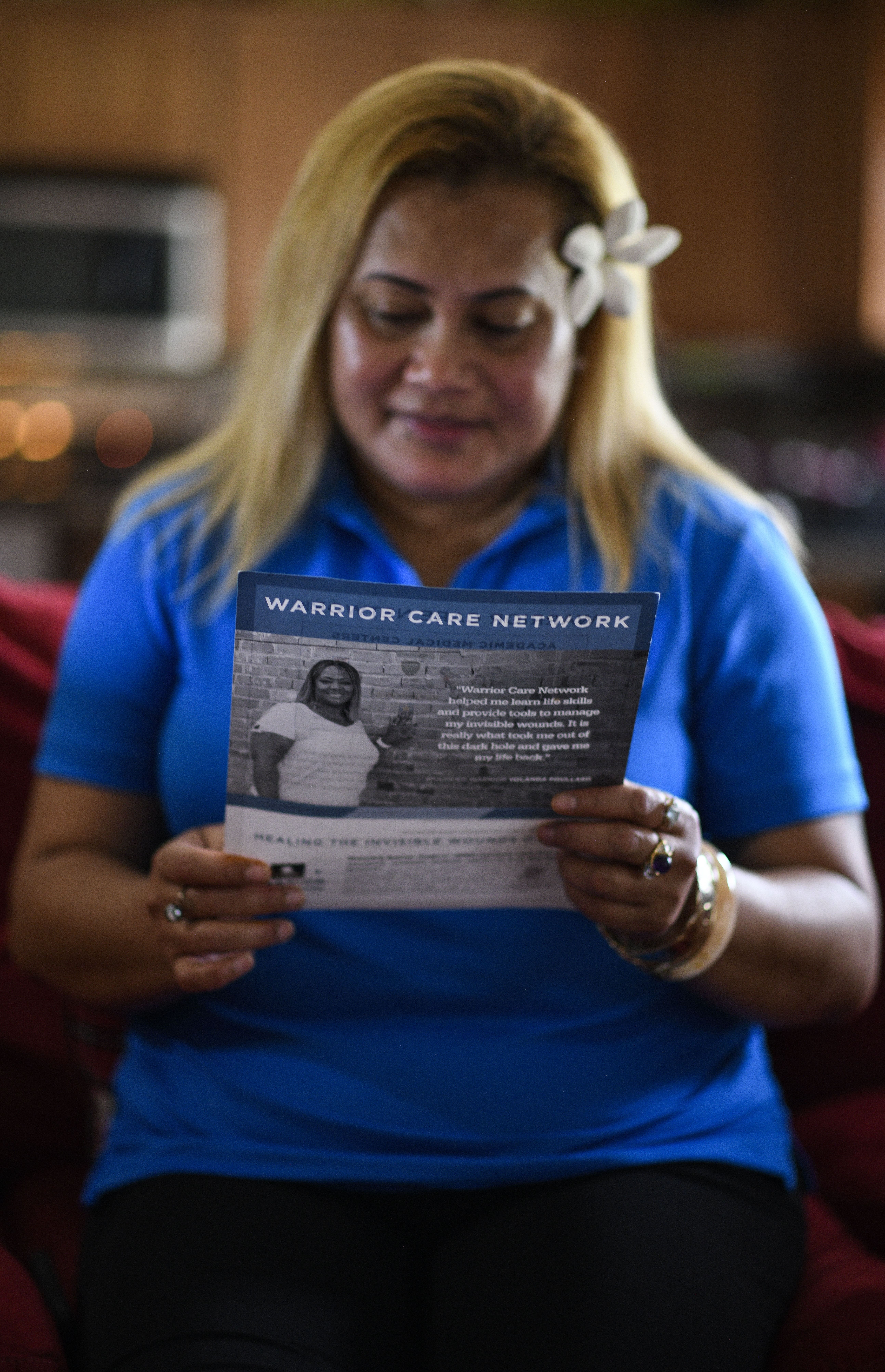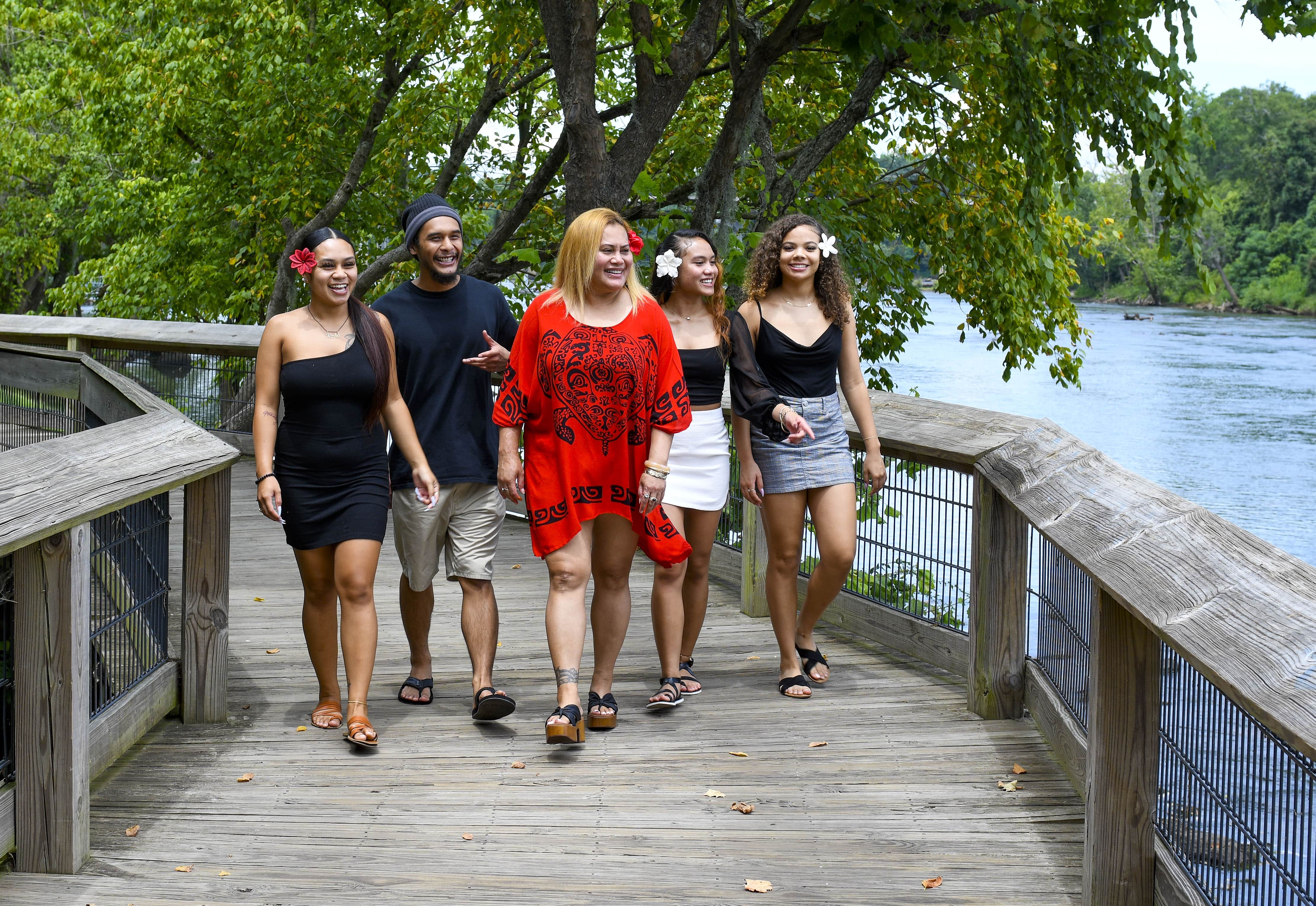A Soldier’s Journey to Sobriety

Battling Scars and Finding Light Through Wounded Warrior Project
Pele Hunkin achieved 640 days sober on Sept. 29, 2023.
Her journey to sobriety is one of transformation, resilience, and hope. “My life carried the scars of battles fought long after I retired from the Army,” Pele said. “I turned to alcohol to find comfort and cope with problems that seemed insurmountable.”
Today, Pele said she’s a living testament to the power of treatment. Through treatment, she found the strength to confront her struggles and embark on a journey to recovery.
“Every day, I am reminded that there is a life beyond my past, and it’s filled with possibilities and a future I can shape,” said Pele.
But substance use, like alcoholism, hasn’t always qualified veterans for treatment. The Supreme Court ruled in 1988 that abusing alcohol could be considered "willful misconduct" and disqualify a veteran from receiving benefits from the Department of Veterans Affairs (VA). Today, veterans have options for addressing addiction. The VA health care program covers services to treat substance use of all kinds.
Pele also discovered her strength through treatment. It was the compassion, understanding, and commitment she received that became her guiding light. Her story serves as a reminder that no warrior should be left behind.

Pele proudly served the U.S. Army from 1994 to 2013.
Navigating the Shadows
Pele enlisted in the U.S. Army in 1994. As an American Samoa native, she felt great pride in being an American citizen and wanted to give back by serving the country she loved.
“I loved being in the military,” Pele said. “It was an honor to serve.”
Everything changed when she deployed to Iraq and began to experience the stress that comes from being in constant danger. Then, in 2006, Pele’s husband died in a tragic accident in Balad, Iraq, where he worked as a government contractor.
The following years were challenging. Pele balanced life as a single mother with her full-time military career, all while battling the symptoms of post-traumatic stress disorder (PTSD). When she retired from the military, things got worse.
“I had been injured physically, mentally, and emotionally,” she said. “Everything hit me all at once and I turned to alcohol to ease my pain. I lost connection with my loved ones. My life was shattered. I had lost control, and I felt like giving up.”

Warrior Care Network helped Pele reconnect to her strength and begin her journey to recovery.
Instead of giving up, Pele found Wounded Warrior Project® (WWP). She got help through the Warrior Care Network® and Home Base, a Red Sox Foundation and Massachusetts General Hospital program. This two-week accelerated treatment program helped address Pele’s PTSD and substance use disorder at the same time.
“It was the program of all the programs that really turned my life around. They didn’t just provide care, they offered me a community of support that changed my life,” she explained. “Every step forward, no matter how small, was a triumph over the shadows of my past.”
Understanding the Evolution of Substance Use in Veteran Care
The road to recovery for veterans struggling with substance use has been filled with obstacles. For many years, VA did not consider alcoholism a disease that qualified for treatment.
Over the last 40 years, these barriers have been broken. In addition, in 2021, VA-funded research also helped shed light on how stigmas around seeking mental health care may lead veterans to see alcohol as a more acceptable coping strategy than therapy.
Now, those enrolled in VA health care can receive treatment and support for substance use problems. If you don’t have VA health care benefits, you may still be able to get care. VA recognizes alcoholism as a secondary service-connected condition. This means veterans can claim disability benefits for substance use problems ranging from alcoholism to the unhealthy use of tobacco, street drugs, or prescription medicines. Veterans can receive screening by their VA provider and treatment at a VA medical center or clinic.
Warrior Care Network offers treatment for the often-intertwined struggles of invisible wounds like PTSD and depression and substance use. On average, veterans entering the Warrior Care Network program with severe PTSD will leave with moderate or mild symptoms and reduce their reliance on substances to manage their moods or thoughts.
Falling and Getting Back Up

Pele’s children were a huge part of her motivation to overcome alcoholism and heal her pain.
Pele’s path to sobriety wasn’t an easy one, and it wasn’t linear either.
“There were moments when the darkness threatened to engulf me,” she said. “I wanted to stop abusing this substance but, at the same time, I used it for so long as an outlet to all the challenges of life.”
Pele had a relapse in 2021 shortly after the holidays.
“It all came back to me,” she recalled. “But I decided to confront my problems, to face the storms raging within me head-on. With the support of health care professionals, therapy, and a network of friends and family, I began the challenging path toward healing.”
She returned to an accelerated clinical program offered by Home Base, knowing what it provided to her before. “I had to ask myself: Is your ‘why’ in life big enough and strong enough to get you out of the darkness?” she said. “It was then that I finally saw the light breaking through the clouds. It was a reminder that there is hope, even in the bleakest moments.”
Pele credits three powerful sources in her journey toward sobriety. Firstly, her deep faith in God provided her with the spiritual guidance and strength she needed to survive.
“My unwavering faith in God played a vital role in my life,” she said. “It’s because of His love, mercy, and grace that I’m where I am today.”
Secondly, the support of her children helped fuel her determination to overcome alcoholism and become the best version of herself. Lastly, the practice of gratitude transformed her life.
“Good, bad, or ugly, I became grateful for every circumstance I went through in life because it shaped me into who I am today. I learned to embrace all the imperfections of me.”
Honoring Service, and Healing Pain
I am Pele Hunkin, who is inspiring the world with the heart of a warrior.
Pele is profoundly grateful for the opportunities she received. When asked who Pele is today, she says, "I am Pele Hunkin, who is inspiring the world with the heart of a warrior."
She explains that sharing her healing journey is not just about acknowledging her struggles, but also about shedding light on the challenges that many veterans go through when facing their trauma or transitioning to civilian life.
“It’s about breaking mental health stigma and seeking help when needed,” she explained.
With the support of substance use treatment, Pele found a brighter future, free from the chains of her past.
The evolution of mental health treatment for substance use made Pele’s evolution possible. “If my story can inspire even one veteran to seek help, choose a healthier outlet for their pain, or offer support to a loved one in need, it is worth sharing.”
During the 2023 Women Warriors Summit in Washington, DC, Pele shared her story with members of Congress and their staffs to advocate for issues affecting women veterans.
“It was humbling,” she recalled. “I am very proud that I took and won my life back. I didn’t give up on me.”
Treatment for substance use can pave the path for a brighter future. Your past does not define who you are.
“I just want to encourage someone to know that they have everything within them to be that change for themselves, not for anyone else,” Pele said. “Take charge of your life, step into your greatness, and when you do, I encourage you to own that greatness.”
WWP offers mental health services for veterans and families coping with the invisible wounds of war. Get connected today or read more about how WWP helps.
Contact: Kendra Hand, Public Relations, khand@woundedwarriorproject.org, 904.776.7099
About Wounded Warrior Project
Since 2003, Wounded Warrior Project® (WWP) has been meeting the growing needs of warriors, their families, and caregivers — helping them achieve their highest ambition. Learn more.